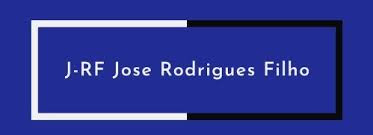The “New Normal” for Nursing Professionals – Better Recognition
Fonte: Agencia Senado
After a long period of much pain and suffering caused by the Covid-19
pandemic, one of the most frequent questions these days is: When will things
get back to normal? But what does this normal in which we live mean? For
renowned philosophers, the “normal” means a model of an economic system that
has failed, responsible for producing unacceptable levels of inequalities,
which have destroyed the moral and social fabric of our society.
Now the discussion of the “new normal” arises. Again, what is this? For
Professor Richard Lachmann, of Political Sociology at the State University of
New York, the prediction is that in the “new normal”, “most people will be
poorer and will have more precarious jobs. The relatively privileged will work
part-time from home, reducing social interaction, with serious consequences for
mental health. Important institutions will be bankrupt throughout the Pandemic.
The United States will have fewer theaters, restaurants, coffee houses,
concerts, and universities.”
The above statement is disheartening, as it is what we read in a recent
survey by the Pew Research Center, when hundreds of experts, including
Professor Lachmann, commented on what the “new normal” would look like in 2025.
For most respondents, we are going to face changes "that will make life
worse for many people with greater inequality, growing authoritarianism and
rampant misinformation after Covid-19."
We know that healthcare professionals were severely punished during the
Pandemic. In turn, nursing professionals make up one of the largest contingents
in the health sector on the front line of combating the Pandemic. When
discussing the "new normal" for nursing professionals, it is good to
know a little about the history of the normal of this profession, "which
deserves more status and power, rather than being treated like ‘ward housewives’”,
even though they are as qualified as doctors, engineers and IT professionals
(1).
It is observed that there is a contradiction between the discourse of the
media and journalists hailing nurses as heroes and the narrative of nursing
professionals about the risks of working in dangerous conditions, especially
during the Pandemic, when many had to sleep outside the home and even in
vehicles to keep the family safe.
The studies of the French
philosopher, Michel Foucault, were used in research carried out in Brazil and
Canada during this period of the Pandemic, which reveals the emphasis given by
the media and journalists to the discourse of nurses as heroes and angels. This
emphasis on nurses as heroes and angels is detrimental to the profession and
has been perpetuated over the years. This discourse creates norms, as a form of
power, which benefits the top management of the health system, to the detriment
of nursing professionals. It is a way of reflecting on what society believes
nurses should be (2,3).
The health care provided by nurses should be
seen as activities of qualified professionals and not as activities of heroes
and angels as if they should commit to being contaminated and killed by
sacrifice and charity. Seeing the nurse as a hero or an angel only reinforces
the attitudes of the top management system in demanding from the nurse the
commitment to an activity of charity and sacrifice. They are professionals who
deserve our respect, good working conditions, adequate remuneration, and
training. Our respect for them requires compliance with basic rules such as
wearing masks, social distance, and other health requirements, which can reduce
their contamination and deaths, and our own protection.
At the height of the pandemic
around the world, nurses on the front lines of healthcare were called heroes
and angels. In Brazil “panelaços” (banging the pots and pans), as well as applauses in the windows of houses and apartments, were organized to greet them
as superheroes. It is worth remembering, however, what was reported about this
fact in Italy, where people's love for nurses is decreasing. "When they
were afraid to die, all of a sudden we all became heroes, but they have
forgotten us."
Stress, abandonment of the profession, and shortage of nurses in the job market around the world are topics that
should be studied in relation to disrespect for this profession. Finally,
in these difficult times when many nurses lost their lives and were called
heroes and angels, what is observed, in practice, is that they are not
respected. What can each of us do so that the “new normal” of nurses in the
future is not the normal of today?
1.Mishra, Sundeep (2015). Respect
for nursing professional: Silence must be heard. Indian Heart Journal. 67:
(413-415).
2. Boulton, M.; Garnett, A.;
Webster, F. (2021) A Foucauldian discourse analysis of media reporting on the
nurse-as-hero during Covid-19. Nursing Inquiry, October.
3. Mendes, M. et al. (2022).
Neither angels nor heroes: nurse speeches during the Covid-19 pandemic from a
Foucauldian perspective. Revista Brasileira de Enfermagem, 75, Suppl.1.








Comentários